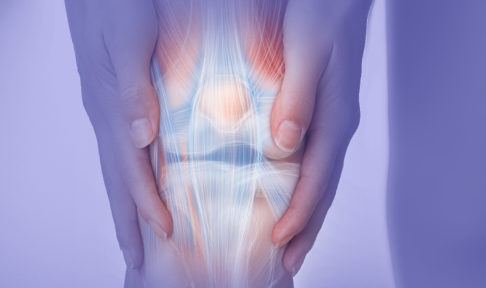Referred pain is when you feel pain in one part of your body, for example your ankle, but the injury that is causing the pain actually occurred in a different area entirely. So, when it comes to upper spine pain (or injuries), it might surprise you to learn that it’s possible to experience symptoms in a number of places that aren’t your neck.
Some injuries can even have happened years earlier and are only just causing you referred pain down the track, meaning you’re even less likely to realise the association between your upper spine and where you’re now feeling the pain.

Here are three places you could be experiencing referred pain caused by an upper back spine injury.
1. Your head
If you’re experiencing frequent or unrelenting headaches, there’s a chance that it could be being caused by an injury to your upper spine. Your neck might not even be hurting, but it can refer pain to your head. This could have originally been caused by a sports injury or traumatic event like a car accident, but it could also just as easily have been caused by poor posture and degeneration over time.
This condition is technically known as cervicogenic headaches, so while you may think you’re experiencing a migraine because of similar symptoms, the cause is actually quite different. While a migraine is caused by issues in your brain, a cervicogenic headache is caused by a problem with the nerves, bones or muscles at the base of your skull and in your neck area.
Through a variety of tests, an experienced physio will be able to determine whether your headaches are being caused by an upper spine issue or not. If they are, there are a number of treatments available including ice/compression to the injured area, postural advice if poor posture or a badly designed work set up are the cause or deep tissue massage for pain relief.
2. Your jaw and face
The TMJ, or temporomandibular joint is the hinge that connects your jaw to your skull. Think of it as the key feature that allows you to chew, talk or laugh. Not only does it hinge up and down, but also side to side, which makes it a little more complicated than your average joint. Consequently, if something disrupts the way the TMJ works, like an upper spinal injury, it can wreak havoc on a whole variety of areas of your body.
Several studies have investigated the relationship between spinal injuries and pain within people’s jaws and faces, with one such study by Wiesinger (2007) reporting that spinal pain increased with the frequency and intensity of TMJ pain. In another US study, 54% of patients who reported pain in their TMJ also reported neck pain.
If you visit a physio and they confirm that your jaw or face pain is actually being caused by referred pain to your TMJ from your upper spine, there are a few different treatment options available. You may be given a tailored exercise plan, including postural advice to help restore normal functionality to your upper spine, or deep tissue massage and dry needling may also be effective treatments.
3. Your shoulders, arms and even legs
If nerves in your upper spine become pinched or damaged, either due to an injury or degeneration over the years, there’s a chance that you will experience pain or tingling in your shoulders, arms and even your legs. This is because your spinal canal or the foraminal space where the nerve roots travel up and down, have become compromised in some way. Injuries to different vertebrae will cause issues in different parts of your body and the more severe the nerve issue is, the more likely it is that the pain will spread. For example, one vertebra may cause bicep pain, whereas another will affect your wrist or shoulder.
Narrowing of the space around the nerves can be diagnosed with the help of imaging such as an X-ray and/or an MRI. Or by using techniques like McKenzie Therapy, a clinically proven method helps to assess and evaluate your movement, by focusing on imbalances and movement irregularities in areas like your neck that are causing pain. Spectrum’s expert physio, Ant Brightwell, is one of only a few registered McKenzie therapists in London and can prescribe a series of customised exercises to help treat your specific issue and reduce and eliminate long-term pain.
So, next time you are experiencing inexplicable pain in an area you’ve never injured like your head, jaw or extremities, consider seeing a qualified physio, as they may be able to diagnose an upper spine condition and treat the cause of the issue, rather than just the symptoms.
Not sure whether the pain you’re experiencing could be being caused by an upper spine injury? Book a free 15-minute consultation with our team of experts today, and we will help you begin your journey to a pain-free life.



